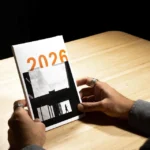How to Master Unscripted Job Interview Questions and Sound Authentic
Interviews can feel like a game of chess—anticipating moves, preparing responses, and hoping to make the right impression. Candidates spend hours rehearsing answers to common questions, researching the company, and perfecting their pitch to present themselves as the ideal hire. However, in today’s hiring landscape, recruiters have become adept at identifying overly polished responses that lack genuine insight. Mastering unscripted job interview questions is crucial for success.
A survey conducted by Glassdoor found that 70% of job seekers value authenticity in an employer’s brand when considering job opportunities. But when they find that authenticity, relying on pre-rehearsed answers may actually work against job seekers rather than in their favor. Hiring managers are increasingly using creative, unscripted job interview questions to assess essential soft skills like critical thinking, adaptability, and emotional intelligence.
To successfully navigate these unexpected unscripted job interview questions, job seekers must shift their mindset from memorization to adaptability. Instead of delivering the “perfect” response, they should aim to engage in a natural, thoughtful conversation, demonstrating their ability to think on their feet and problem-solve in real time. In a workforce where adaptability is ranked as one of the top skills, demonstrating the ability to think critically at the moment is more valuable than any rehearsed answer.
Why Use Unscripted Job Interview Questions?
From a recruiter’s viewpoint, David Garcia, cofounder and CEO of ScoutLogic, shares why interviewers need to ask unique questions: “The information you get from a candidate is almost entirely dependent on the questions you ask in the interview. You want to make sure you’re hiring the right person for the job. Asking the standard boilerplate questions that candidates anticipate and even prepare for is unlikely to give you a deeper look into their suitability. But asking unusual and unexpected unscripted job interview questions can help you do that.”
This shift requires a new approach prioritizing self-awareness and the ability to articulate ideas seamlessly. Here’s how to prepare for offbeat interview questions while maintaining authenticity.
Embrace Uncertainty With Open-Ended Stories in Unscripted Job Interview Questions
Recruiters no longer ask, “What’s your biggest weakness?” because they know candidates have a polished response. Instead, they’ll ask:
- “Tell me about a time you were completely wrong about something at work.”
- “What’s a professional opinion you’ve changed your mind about in the last year?”
These unscripted job interview questions test your self-awareness and ability to reflect. LinkedIn’s 2023 Workplace Learning Report found that 89% of professionals believe continuous learning is essential for career success. Showcasing how you’ve evolved professionally demonstrates your adaptability and willingness to grow.
How to answer: Use the STAR Method (Situation, Task, Action, Result), but keep it natural. Instead of fearing mistakes, own them and explain the lesson learned.
Example: “At my last job, I was convinced that weekly status meetings were necessary. However, after testing async updates, productivity actually increased by 15%. I realized I was holding onto a habit that wasn’t effective anymore.”
Think On Your Feet With Unexpected Thought Experiments in Unscripted Job Interview Questions
Many hiring managers now assess problem-solving by throwing in curveballs like:
- “Teach me something in 60 seconds that I probably don’t know.”
- “If you had no budget but needed to launch a project, what would you do?”
According to a McKinsey report, problem-solving and critical thinking are two of the top five skills employers seek, yet 60% of hiring managers say candidates struggle in these areas. These are common examples of unscripted job interview questions.
How to answer: The goal isn’t to have a perfect response; it’s to demonstrate your ability to think under pressure.
Example: If asked to teach something in 60 seconds, pick a unique skill and keep it engaging. “Let me teach you a quick memory trick: If you want to remember someone’s name, associate it with a visual cue. For example, if you meet a Mike, picture a microphone.”
Demonstrate Culture Fit Without Sounding Cliché in Unscripted Job Interview Questions
Instead of “Tell me about yourself,” companies now ask:
- “If we asked your last team what your ‘superpower’ is, what would they say?”
- “What’s a weird or unexpected skill you have that helps you at work?”
Culture fit is crucial, with 88% of hiring failures attributed to poor culture fit rather than lack of skills. These unscripted job interview questions help employers gauge personality beyond buzzwords like “team player” and “hard worker.”
How to answer: Use storytelling to make your answer memorable.
Example: “My team calls me the ‘human whiteboard’ because I’m always sketching out ideas on paper, which helps people visualize complex concepts.”
Showcase Initiative With Forward-Thinking Questions in Unscripted Job Interview Questions
A great interview isn’t just about answering well—it’s about asking the right questions. Instead of generic ones like “What’s the company culture?”, try:
- “If I succeed in this role, what impact will I have made in my first six months?”
- “What’s one challenge the team currently faces that I could help solve?”
These are great examples of unscripted job interview questions you can ask.
How to answer: Prepare at least three thoughtful questions that show you’ve researched the company and are thinking about long-term impact.
Hiring managers are trained to detect rehearsed answers. The next time you’re hit with a question you didn’t expect, don’t panic. Pause, think, and lean into the opportunity to show who you truly are because, in today’s job market, being real is your best strategy. Mastering unscripted job interview questions will set you apart from other candidates.
Credit: Forbes.com








